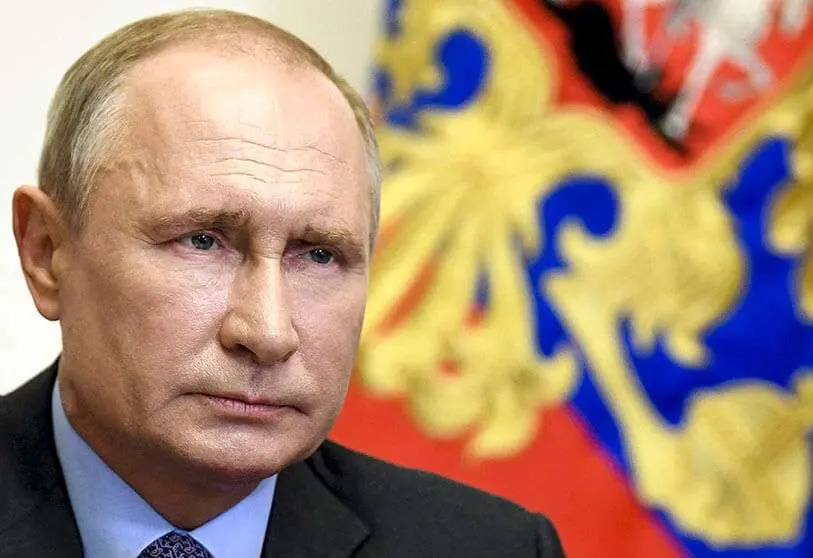Catalan-Russian geopolitical dreams

Unlike on other occasions, the Russian Embassy in Spain has preferred to make a mockery of the alleged offer in 2017 to the then Catalan president, Carles Puigdemont, of 10,000 soldiers and the cancellation of all his debt in order to achieve the separation of Catalonia from Spain. This is a solution that the legation intends to deny, even informally by making fun of Russia's alleged interference in an issue that the European Union has repeatedly described as Spain's "internal affair".
This is not the view of Magistrate Joaquín Aguirre, head of Barcelona's Court of Instruction number 1, whose investigations have so far resulted in 31 searches in various municipalities of Girona and Barcelona and the arrest of 21 people, including several political leaders and openly separatist businessmen, such as Xavier Vendrell (ERC), Víctor Terradellas and David Madí, both from CDC, and Oriol Soler, a media entrepreneur, all of whom have been generously provided with subsidies from the Generalitat of Catalonia and openly at the service of the independence process. All the investigations, carried out by the Guardia Civil, have been grouped together under the name of Operation Volhov, the name of the first battle fought by the Blue Division on Russian soil on 12 October 1941, which was then settled with the victory of the Spanish divisionaries.
Despite the hilarity the affair seems to have aroused in the ambassador Yuri Korchegin, Catalan-Russian contacts seem to be proven, though, as in any plot of betrayal and espionage, each interlocutor draws his own conclusions, most of the time none or scarcely any.
It is no novelty that in 2014 President Vladimir Putin's Russia took a decisive step towards breaking international law by seizing Ukraine and annexing the Crimean peninsula, an operation that triggered the resulting wave of sanctions and the European Union's growing mistrust of Moscow. According to Judge Aguirre's order, businessman Oriol Soler is said to have travelled to St Petersburg on 5 June 2017, carrying Puigdemont's message that an independent Catalonia would immediately recognise the Crimea annexed by Russia.
It would be a dream, as stated in the Supreme Court's ruling condemning the main architects of the "process", but there is plenty of evidence that Russia is playing at destabilising other countries and regions as part of its overall strategy of recovering its role as a major power. That achieving permanent bases in the Mediterranean is one of its clearest ambitions is beyond doubt, and that if it had one in the westernmost part of the Mare Nostrum this would be tantamount to burning out several stages in these aspirations to regain imperial grandeur.
However, it is highly unlikely that the EU, NATO and, of course, the United States would have allowed such desires or dreams to cross the threshold of their virtuality. On the other hand, it is not so farfetched to consider that if Moscow had wanted to go further with Puigdemont and his henchmen, Spain would have been dragged into a more dramatic episode than a public disturbance, however serious and persistent it might be.
We will have to see how far those Catalan-Russian talks went. The embassy in Madrid, which has made a great deal of fuss, says that the supposed offer to send 10,000 soldiers is missing two zeros and that the "Chato" and "Mosca" -planes that Russia put at the service of the Second Republic during the Spanish Civil War- should also be counted on, hidden somewhere in Catalonia. However, the supposed negotiations to adopt "Catalan-style crypto-money" to settle its public debt and turn the future new republic into a "new Switzerland" deserve less laughter. The tenor of the talks intercepted from those now detained, although they could be described as delusions, seems to show an unequivocal conviction in the success of their project.
However, the supposed epic of the operation is tarnished, according to Judge Aguirre's order, by the crude and even grotesque corruption that emanates from the many other wanderings of the accused, which suggest that the plot devised by Puigdemont and his henchmen was primarily aimed at securing the funds needed to enjoy a privileged life, untroubled and well framed by a story full of heroic deeds. The fact is that even the greatest criminals, in addition to living in the body of a king, aspire to occupy a place of honour in history.

